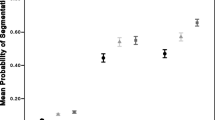Abstract
The purpose of this study was to test the effectiveness of a modeling paradigm. It was designed to determine the impact of providing knowledge about the superstructure of texts on the ability of 10-year-olds to improve an experimental text, and in doing so, to use predefined revising strategies.
Ninety-six children of differing degrees of expertise made a series of corrections to improve a narrative or a description in which three within-statement and three between-statement errors had been inserted. Before this revising task, half of them performed a reading task in which they were familiarized with the schema of the type of text they would have to correct. Both tasks were computer-driven.
The correction-sequencing procedures employed and the texts produced by the children who had done the reading task before revising were compared to those of the children who had only revised. More of the children in the pre-task group were found to improve the text correctly, regardless of their degree of expertise or the type of experimental text, and more of them used the most efficient strategy (the Simultaneous Strategy), which in a preceding experiment had only been used by expert adults.
Similar content being viewed by others
References
Adam, J. M. (1987). Approche linguistique de la séquence descriptive. Pratiques, 55, 3–27.
Adam, J. M., & Revaz, F. (1989). Aspects de la structuration du texte descriptif: les marqueurs d’énumération et de reformulation. Langue Française, 81, 59–98.
Anderson, J. R. (1987). Skill acquisitions Compilation of weak-method problem solutions. Psychological Review, 94, 192–210.
Daiute, C. Physical and cognitive factors in revising: Insights from studies with computers, Research in the Teaching of English, may, 141–159.
Espéret, E. (1984). Processus de production: genèse et rôle du schéma narratif dans la conduite de récit. In M. Moscato & G. Piérault-Le Bonniec (Eds.), Le langage: construction et actualisation (pp. 179–196). Rouen: Presses Universitaires de Rouen.
Espéret, E. (1989). Micro- and macrostructural planning and control in production: approaches to the storytelling situation. In H. Mandl, E. de Corte, S. N. Bennet, & H. F. Friedrich (Eds.), Learning and Instruction, (pp. 357–366). Oxford: Pergamon.
Fayol, M. (1983). L’acquisition du récit: un bilan des recherches. Revue Française de Pédagogie, 62, 65–82.
Fayol, M. (1986). Les types de texte: approches de psychologie cognitive. Paper presented at the meeting «Texts and Text Processing», Poitiers, 22–25 Septembre.
Fayol, M., & Gombert, J. E. (1987). Le retour de l’auteur sur son texte: Bilan provisoire des recherches psycholinguistiques. Repères, 73, 85–95.
Guercin, F., Roussey, J.-Y., & Piolat, A. (1990). Time series: A tool for analyzing complex cognitive activities. Application to the study of text revising strategies. Cahiers de Psychologie Cognitive/European Bulletin of Cognitive Psychology, 1, 79–110.
Hayes, J. R., & Flower, L. S. (1980). Identifying the organization of writing processes. In L. W. Gregg, & E. R. Steinberg (Eds.), Cognitive processes in writing (pp. 3–30). Hillsdale, N.J.: Lawrence erlbaum.
Hayes, J. R., Flower, L. S., Schriver, K., Stratman, J., & Carey, L. (1987). Cognitive processes in revision. In S. Rosenberg (Ed.), Reading, writing, and language learning advances in applied psycholinguistics, Vol. II (pp. 176–240). Cambridge: Cambridge University Press.
Joram, E., Woodruff, E., Lindsay, P., & Bryson, M. (submitted). An assessment of students’ editing skills and attitudes toward word processors. Computers and Composition.
Piolat, A. (1990). Vers l’amélioration de la rédaction de texte. Dossier d’habilitation à diriger les recherches, Université de Provence, Aix en Provence.
Piolat, A., Roussey, J.-Y., & Farioli, F. (1987). Révision de texte par l’enfant et l’adulte en production assistée par ordinateur. Bulletin d’Audiophonologie, 3, 733–748.
Piolat, A., Farioli, F., & Roussey, J.-Y. (1989). La production de texte assistée par ordinateur. In G. Monteil, & M. Fayol (Eds.), La psychologie scientifique et ses applications (pp. 177–185). Grenoble: Presses Universitaires de Grenoble.
Piolat, A., & Roussey, J.-Y. (1990). Narrative and descriptive text revising strategies and procedures. In P. Boscolo, E. Espéret & M. Fayol (Eds.) (1991). Writing. European Journal of Psychology of Education, Vol. VI, n. o1, 97–98.
Roussey, J.-Y. (1989). Stratégies de révision de texte: Evaluation du rôle des connaissances par un paradigme de conformisation. Thèse de Doctorat d’Université, Université de Provence, Aix-en-Provence.
Roussey, J.-Y., Piolat, A., & Guercin, F. (1990). Revising strategies for different text types. Language and Education, 1, 51–65.
Scardamalia, M., & Bereiter, C. (1983). The development of evaluative, diagnostic, and remedial capabilities in children composing. In M. Martlew (Ed.), The psychology of written language: A developmental approach (pp. 69–75). New York, N.J.: Wiley.
Scardamalia, M., & Bereiter, C. (1985). Fistering the Development of Self-Regulation in Children’s Knowledge Processing. In S. F. Chipman, J. W. Segal, & R. Glaser (Eds.), Thinking and learning skills. Research and open questions (pp. 563–577). Hillsdale, N.J.: L.E.A.
Stein, N. L., & Glenn, C. G. (1982). Children’s concept of time: the development of a story schema. In W. J. Friedman (Ed.), The developmental psychology of time. New York: Academic Press.
Author information
Authors and Affiliations
Additional information
The experiment reported in this article was conducted at the Centre de Recherche en Psychologie Cognitive, a research unit affiliated with the Centre National de la Recherche Scientifique, France.
Rights and permissions
About this article
Cite this article
Roussey, JY. Text schemas in a modeling paradigm: Improvement of a narrative and a description by ten-year-olds. Eur J Psychol Educ 6, 233–242 (1991). https://doi.org/10.1007/BF03191941
Received:
Published:
Issue Date:
DOI: https://doi.org/10.1007/BF03191941




